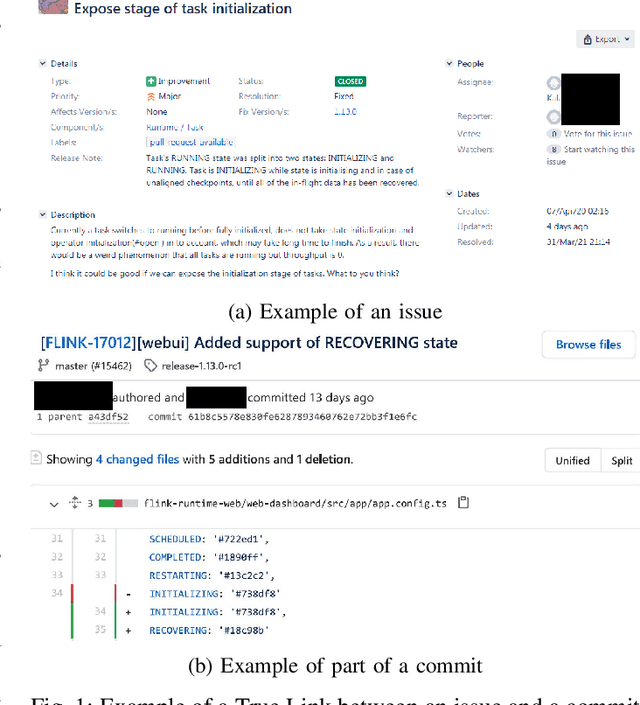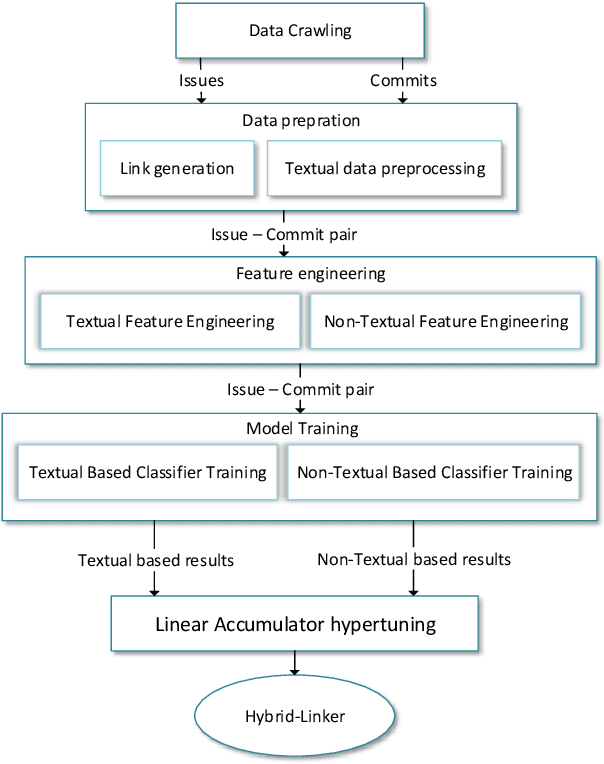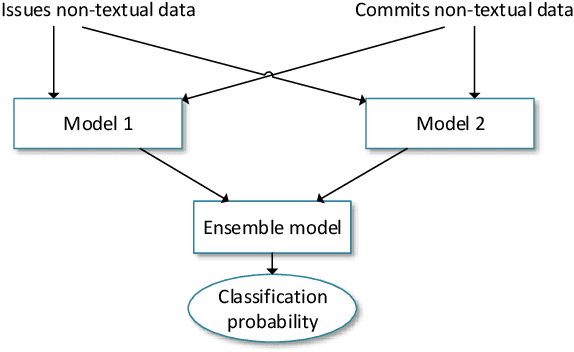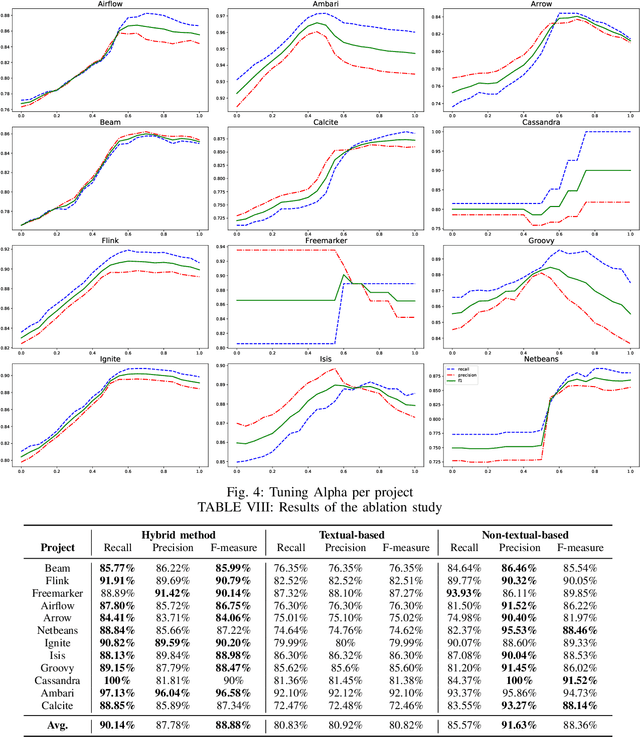Pooya Rostami Mazrae
LinkFormer: Automatic Contextualised Link Recovery of Software Artifacts in both Project-based and Transfer Learning Settings
Nov 01, 2022Abstract:Software artifacts often interact with each other throughout the software development cycle. Associating related artifacts is a common practice for effective documentation and maintenance of software projects. Conventionally, to register the link between an issue report and its associated commit, developers manually include the issue identifier in the message of the relevant commit. Research has shown that developers tend to forget to connect said artifacts manually, resulting in a loss of links. Hence, several link recovery techniques were proposed to discover and revive such links automatically. However, the literature mainly focuses on improving the prediction accuracy on a randomly-split test set, while neglecting other important aspects of this problem, including the effect of time and generalizability of the predictive models. In this paper, we propose LinkFormer to address this problem from three aspects; 1) Accuracy: To better utilize contextual information for prediction, we employ the Transformer architecture and fine-tune multiple pre-trained models on textual and metadata of issues and commits. 2) Data leakage: To empirically assess the impact of time through the splitting policy, we train and test our proposed model along with several existing approaches on both randomly- and temporally split data. 3) Generalizability: To provide a generic model that can perform well across different projects, we further fine-tune LinkFormer in two transfer learning settings. We empirically show that researchers should preserve the temporal flow of data when training learning-based models to resemble the real-world setting. In addition, LinkFormer significantly outperforms the state-of-the-art by large margins. LinkFormer is also capable of extending the knowledge it learned to unseen projects with little to no historical data.
Automated Recovery of Issue-Commit Links Leveraging Both Textual and Non-textual Data
Jul 05, 2021



Abstract:An issue documents discussions around required changes in issue-tracking systems, while a commit contains the change itself in the version control systems. Recovering links between issues and commits can facilitate many software evolution tasks such as bug localization, and software documentation. A previous study on over half a million issues from GitHub reports only about 42.2% of issues are manually linked by developers to their pertinent commits. Automating the linking of commit-issue pairs can contribute to the improvement of the said tasks. By far, current state-of-the-art approaches for automated commit-issue linking suffer from low precision, leading to unreliable results, sometimes to the point that imposes human supervision on the predicted links. The low performance gets even more severe when there is a lack of textual information in either commits or issues. Current approaches are also proven computationally expensive. We propose Hybrid-Linker to overcome such limitations by exploiting two information channels; (1) a non-textual-based component that operates on non-textual, automatically recorded information of the commit-issue pairs to predict a link, and (2) a textual-based one which does the same using textual information of the commit-issue pairs. Then, combining the results from the two classifiers, Hybrid-Linker makes the final prediction. Thus, every time one component falls short in predicting a link, the other component fills the gap and improves the results. We evaluate Hybrid-Linker against competing approaches, namely FRLink and DeepLink on a dataset of 12 projects. Hybrid-Linker achieves 90.1%, 87.8%, and 88.9% based on recall, precision, and F-measure, respectively. It also outperforms FRLink and DeepLink by 31.3%, and 41.3%, regarding the F-measure. Moreover, Hybrid-Linker exhibits extensive improvements in terms of performance as well.
 Add to Chrome
Add to Chrome Add to Firefox
Add to Firefox Add to Edge
Add to Edge